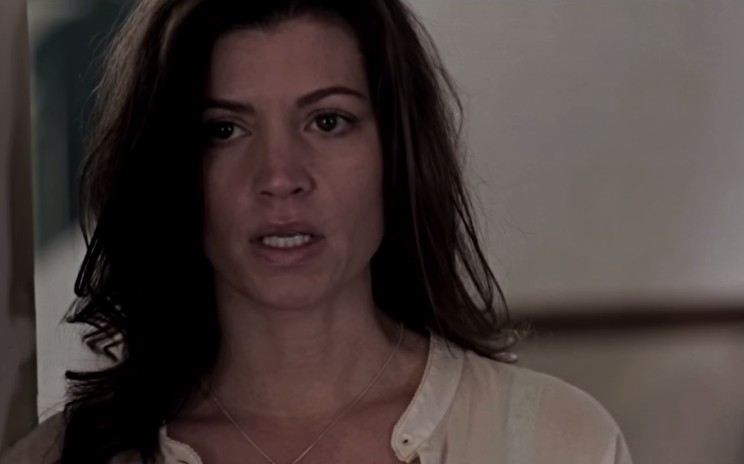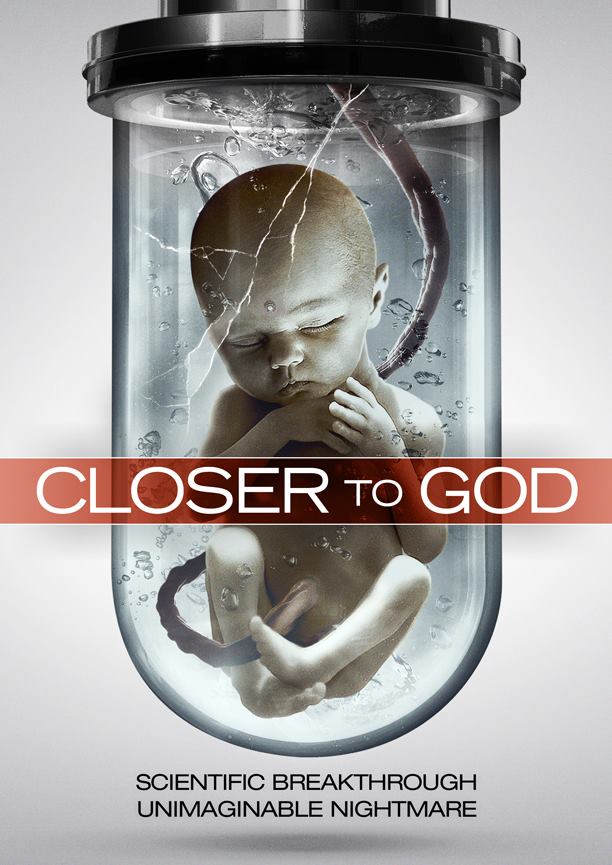Long before Mary Shelly’s Frankenstein, mankind has been obsessed and fascinated by its own mortality and cheating death. In the decades that have passed since Frankenstein’s release, advances in technology have made prolonging life possible. Going one step further again, it became possible to clone people. Writer/Director Billy Senese’s latest Horror/Thriller/Sci-Fi (The Suicide Tapes 2010, Intruder 2011), Closer to God, released by Uncork’d Entertainment, on July 3rd in the United States, focuses on the issue of human cloning.

A hotly debated topic from all angles, the ethical and biological ramifications of human cloning are represented in Closer to God by the birth of the first cloned human, Elizabeth. The doctor responsible, Dr. Victor Reed (Jeremy Childs: Nashville TV series, The Beast of Balor 2013) combined his sperm with other undisclosed donors, along with the mother’s DNA, also an unknown source. To further distance Elizabeth from her donor parents, a separate surrogate mother is used. Upon Elizabeth’s birth, Reed advises the press that he has successfully cloned a human being, but she will not be ready for viewing for a month. At this time, Reed will also release his research findings to be critiqued, another hot topic amongst the medical profession.
On the surface, Reed is driven, singled-minded, and bordering on obsessive with his work. Just under that surface, his obsession is at the detriment of his relationship with wife Claire (Shannon Hoppe: Killzone Intercept 2012, Form 17 2012), and their two small daughters. Over time, Claire has grown despondent and their mysterious past seems to haunt her. Unable to take care of their daughters herself, Claire has the help of neighbors, Mary (Shelean Newman: Closer to God) and her husband Richard (David Alford: Stoker 2013, Nashville TV series). To ensure Elizabeth’s health, she is regularly subjected to genetic treatment, and a small stint in her brain releases the drugs. Her every movement and sound is recorded and analysed, but is purely scientific, leaving her often to cry herself to sleep.

Each day since Elizabeth’s birth, the controversy surrounding her existence continues to grow and increases in intensity. Outside conflicts are not Reed’s only problem. It seems there is a deep, dark secret involving Victor, Mary, and Richard that may threaten not only his career but also his life. Victor begins to realize the tight grip he had on all aspects of his life, is quickly untying before his very eyes. Elizabeth’s life creates havoc in a short time frame and, soon enough, things start unravelling not just for Victor, but for each character, revealing a bitter, harsh truth, not to be taken lightly.
Re-igniting the age old battle of not playing God, Closer to God brings to the forefront some issues with cloning not currently considered. A heavy script that requires a great deal of intensity from the small cast, which they pull off effortlessly. If it were not for some of the lighter moments, Closer to God would make for difficult viewing, but its underlying theme is not only important, but relevant. The cinematography by Evan Spencer Brace (Another Corner 2012, Jake Plays First Base 2015), is complemented by simple yet effective special effects by Director Doug Mallette (Worm 2014, Attached 2012), and Daryl Stamps (The Beast of Balor 2013, Black Hog Gut 2014) as his debut feature film.

Considered a modern retelling of the classic Frankenstein, delving into the concept of perfecting the human DNA, Closer to God is a thought-provoking, tension-packed brain fest. Some scenes are not for the faint-hearted, and parents may struggle with the detachment in relation to Elizabeth, but pushing that aside will pay off in the end. Audiences will be on the edge of their seats, and Senese is certainly one to keep an eye out for. Closer to God is part of the new generation of cerebral films, and a must watch. CrypticRock gives Closer to God 5 out of 5 stars.







No comment